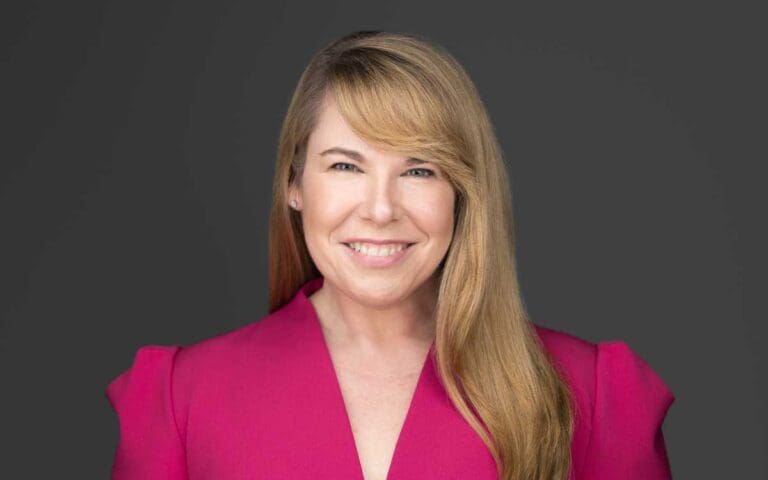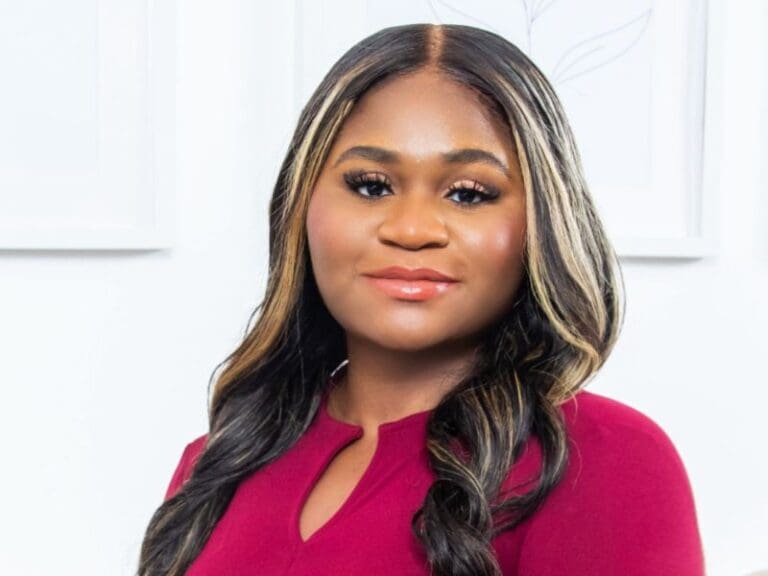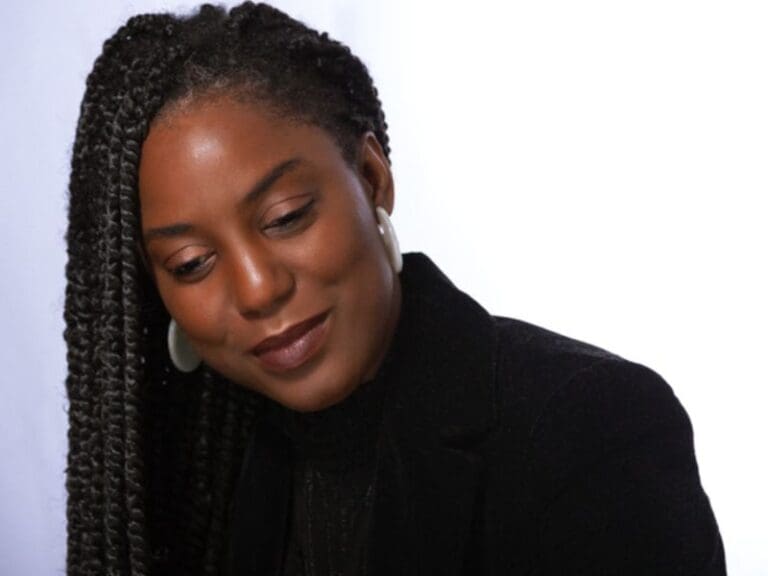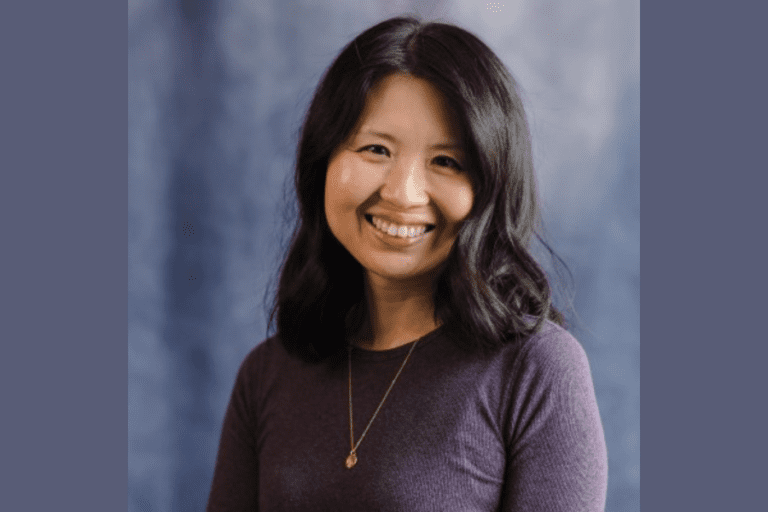Dr. Brooke Grindlinger is a microbiologist and Chief Scientific Officer at The New York Academy of Sciences (NYAS)—among the oldest scientific organizations in the United States.
Dedicated to amplifying the positive impact of science on people and our planet, she leads the development, growth, and excellence of scientific aspects of the Academy’s portfolio of programs, products, and initiatives—spanning scientific and educational convenings and courses, fellowship and prize programs, and public-private partnerships across the life and physical sciences, the social sciences, nutrition, artificial intelligence, computer science, and sustainability. Brooke previously oversaw editorial management and scientific content creation at The Journal of Clinical Investigation. She has appeared as an expert speaker at the United Nations, South by Southwest, National Institutes of Health, and Georgetown University, as well as various podcasts and webinars. Her writing has been featured in outlets such as The Washington Post, International Business Times, The Chronicle of Philanthropy, and Authority Magazine.
How did you land your current role? Was it planned?
Earlier in my career, as the Science Editor for The Journal of Clinical Investigation, I often attended STEM conferences at The New York Academy of Sciences, seeking out the latest science and tech innovations emerging from academia and inviting researchers to publish their discoveries in our journal. I built relationships with the scientific leadership of the organization, and when an opportunity came about to join their team as the Director of the Life Sciences conference portfolio, I jumped at the chance to transfer my technical skills from the science communications sector to the nonprofit sector. Since then, I have been fortunate to grow and shape my role over a decade with the organization.
My transition to the Chief Scientific Officer role was not planned – but I did initiate the conversation. I proposed consolidating two large business units under my leadership, to align with my ambitions, and I requested the creation of the “Chief Scientific Officer” role as part of this transition. It was not a title that existed in the organization at that time. It wasn’t an easy win, but I persevered and insisted on that title – illustrating the importance of not being afraid to ask for what you want and holding out if the initial answer is “no.”
What are the key roles in your field of work, and why did you choose your current expertise?
As CSO, I am privileged to collaborate with an incredible team of scientists, engineers, and clinicians with expertise across many different STEM disciplines: from neuroscience and cancer to astrophysics and artificial intelligence, and K-12 STEM education to ethics. Additionally, I collaborate closely with professionals in marketing, communications, fundraising, and event operations, crucial partners in delivering our scientific programs and products to both our customers and community.
During my undergraduate studies in science, my fascination with microbiology ignited during a morning lecture infamous for its stomach-turning content. This annual presentation, devoid of note-taking obligations, showcased a 50-minute slide show vividly illustrating the devastating impact of bacteria and viruses on the human body. I left the lecture hall pondering how – given all the organisms around us, on us, and in us – we each live in a delicate balance between health and disease. I had to understand more about the microscopic world with which we co-exist. This curiosity led me to specialize in the study of the bacterium responsible for tuberculosis, a highly contagious lung disease still posing challenges today in treatment due to increasing antibiotic resistance.
Did you (or do you) have a role model in tech or business in general?
Given the historical underrepresentation of women in science and tech, accessible senior female role models have been scarce in my field, especially early in my training with few female lecturers or advisors during my academic journey. Nevertheless, I have been fortunate to cultivate a network of remarkable role models and mentors among my peers – fellow women scientists at a similar career stage working in diverse sectors: academic administration, scientific research, media relations, and publishing. Collaborating with these inspiring women has proven immensely fulfilling as we offer support and guidance to one another, collectively navigating and surmounting the challenges encountered throughout our careers.
What are you most proud of in your career, so far?
Undoubtedly, collaborating with billionaire philanthropist and industrialist Sir Leonard Blavatnik to launch the Blavatnik Awards for Young Scientists program in the United Kingdom and Israel, offering the largest unrestricted prizes for early-career scientists. This program supports pioneering young scientists and engineers doing research in areas such as climate change mitigation, pandemic preparedness, sustainable farming, renewable energy storage, mental health treatments, cybersecurity, and water purification.
It has been incredibly rewarding to help scientists at that critical — and often vulnerable — juncture in their career when they are transitioning from trainee to lead investigator. It’s a time when recognition and funding can have perhaps the greatest impact. It’s truly a privilege to personally notify award recipients of their well-deserved recognition, and nothing compares to the moment when someone’s elation overflows into tears of joy upon hearing the news. Being a part of those moments reaffirms the profound impact of assisting others in their success, reminding me that enabling other scientists to shine is an invaluable contribution to leaving a lasting imprint on the world.
There are also profound, one-on-one moments that reinforce my pride in the work I do. Hosting dynamic conversations with brilliant scientists about their groundbreaking discoveries is a particular joy of mine — I aim to instill in audiences the same sense of awe and wonder that science evokes in me. One memorable encounter occurred during a coffee break at a public scientific symposium I hosted in London in 2022, when a high school-aged girl approached me and earnestly exclaimed, “You are so inspirational.” Every moment of my work is an opportunity to serve as a mentor and role model, especially for young women aspiring to pursue careers in science.

What does an average work day look like for you?
On any given day I might be advocating for policy changes in STEM by speaking to global leaders at the United Nations, or meeting with university or company leaders about potential collaborations with the Academy to bolster scientific research, education, or policy initiatives. Whether crafting social media content to honor women scientists during Women’s History Month, mentoring young scientists on effective communication, or participating in jury meetings to select recipients of the Academy’s prestigious science prizes, my role is dynamic and ever evolving. I am constantly learning about new and emerging innovations in science and tech and continue to be awestruck by the transformative power of science.
Are there any specific skills or traits that you notice companies look for when you’re searching for roles in your field?
Multidisciplinary expertise: in today’s landscape, innovations in science and tech often emerge not solely from curiosity-driven research in a single field, but from collaborative efforts spanning multiple disciplines. For example: combine expertise from the realms of artificial intelligence and infectious disease and we can build a tool to predict and design new classes of antibiotics. If you have experience bridging diverse STEM disciplines, you’re boosting your appeal and value to prospective employers, as it demonstrates your capacity to contribute meaningfully to interdisciplinary projects and address complex challenges with a holistic approach.
Communications skills: In addition to possessing deep technical expertise, effective communication skills are indispensable. The ability to articulate your ideas clearly and translate complex concepts is essential for gaining support and buy-in from individuals both within and outside your field, enabling you to drive meaningful impact across your team, up the management hierarchy, and throughout your organization.
A Willingness and Ability to Lead People and Projects: Demonstrating a willingness and ability to lead people and projects is paramount, yet transitioning from an individual contributor to a leader can be challenging and may not always be the preferred path. Your adaptability and resilience in navigating the complexities of team leadership and project management are essential for driving success in these roles.
Has anyone ever tried to stop you from learning and developing in your professional life, or have you found the tech sector supportive?
In my experience, the tech sector has been largely supportive of my proactive approach to learning new skills and expanding my role and responsibilities. I’ve discovered that a crucial factor in advancing in this field is confidently articulating your desires: whether it’s seeking more opportunities, increased responsibility, additional support, or higher compensation. Often, individuals are willing to help in your career journey once you clearly communicate your needs and aspirations. Don’t wait passively for recognition and opportunity to find you—go out and seize them proactively.
Have you ever faced insecurities and anxieties during your career, and how did you overcome them?
Early in my microbiology career, I fretted over conforming to the stereotype of a “real scientist” confined to lab coats and microscopes. However, I soon recognized the abundance of alternative career paths where my technical prowess could still be harnessed to effect change. Embracing these unconventional roles not only broadened my skill set beyond traditional lab confines but also exposed me to diverse disciplines such as science communications, marketing, media relations, fundraising, partnership development, consulting, and nonprofit administration. This multifaceted expertise significantly enhances one’s attractiveness to prospective employers. And it’s that unique, multidisciplinary skillset that also enhances your appeal to prospective employers.
No one is immune to self-doubt. I can grapple with self-doubt, particularly when tasked with unfamiliar challenges, especially on grand stages. For instance, last year, I delivered a speech at the United Nations Headquarters in New York, addressing digital technologies and gender equality. Initially daunted by the prospect, I soon recognized that embracing such opportunities, despite intimidation, is vital for professional development. Reflecting on my successful presentation, I realized the extent of my capabilities, highlighting how underestimating ourselves is a common pitfall; often, our abilities surpass the limits we impose on ourselves.
Entering the world of work can be daunting. Do you have any words of advice for anyone feeling overwhelmed?
Navigating the complexities of a new work environment can feel overwhelming, but it’s essential to differentiate between what you can control and what you can’t. Focus your efforts on areas where you can make a tangible impact, while releasing worries about factors beyond your influence. Additionally, don’t hesitate to seek assistance when necessary. I consistently urge my team to request help proactively, rather than waiting until the last minute. I am here to provide, to the best of my ability, the resources, information, extra hands, or time you require to succeed.
What advice would you give other women wanting to reach their career goals in technology?
Embrace boldness in your ideas, cultivate a strong viewpoint, and fearlessly stand out. As women leaders in the tech industry, we often find ourselves as the sole woman or one of few women in the room or at the decision-making table. The temptation may be to blend in and conform to established (and often male) norms of success. I confess to succumbing to this earlier in my career, believing I needed to conform to outdated leadership archetypes in STEM. However, here’s the revelation: You are the secret ingredient. Your unique experiences and perspectives are unparalleled, shaping your vision in a way no one else can. Embrace the unfamiliar, seize daunting opportunities, and boldly voice your ideas. That’s when the real rewards manifest.







